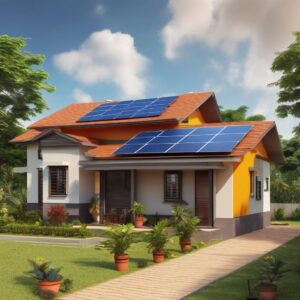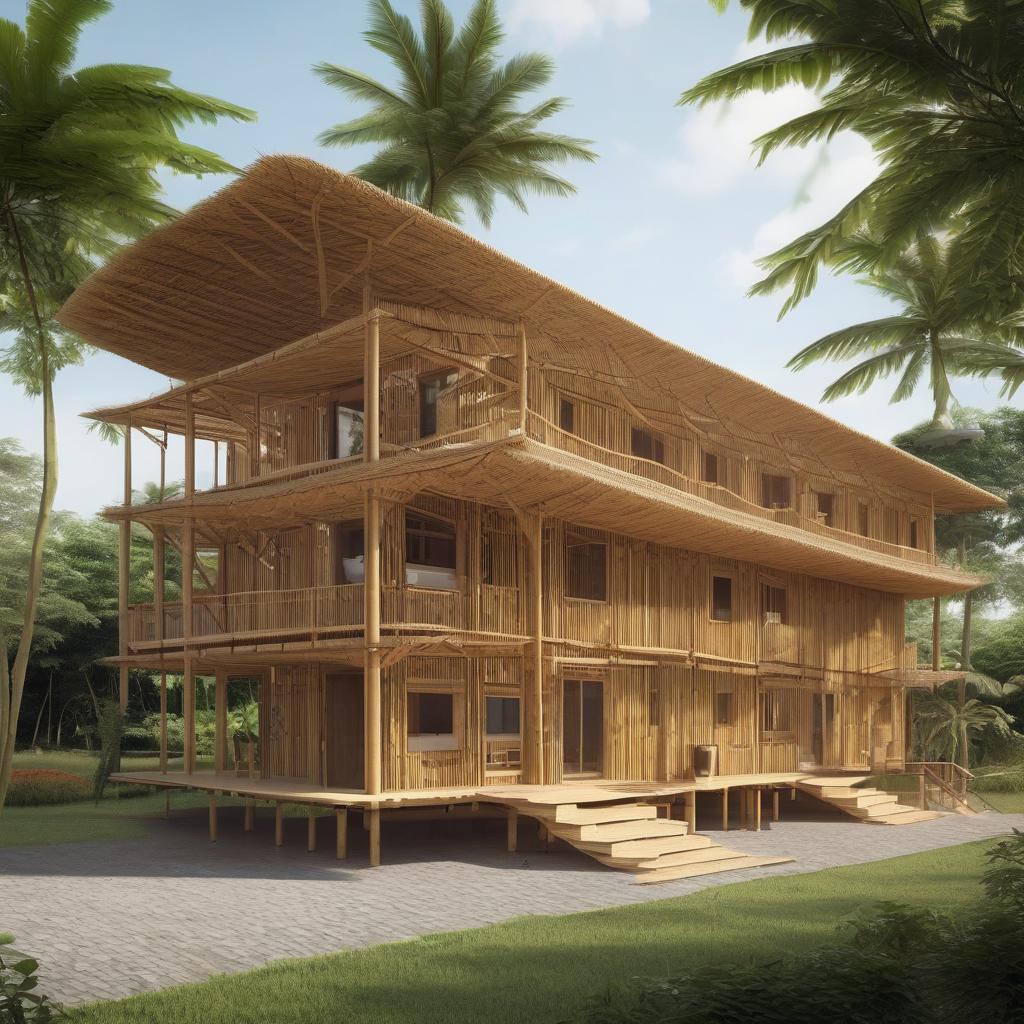Introduction
Discover how solar panel installation is transforming homes in Ghana with this in-depth case study. Learn about benefits, challenges, and best practices for adopting renewable energy solutions in Ghanaian households. Ghana’s energy landscape is at a crossroads. Despite significant progress in expanding electricity access, challenges like frequent power outages (“dumsor”), rising electricity tariffs, and reliance on fossil fuels persist. Solar energy offers a transformative solution. With abundant sunshine, averaging 5–6 peak sunlight hours daily, Ghana is primed to harness solar power for sustainable, cost-effective home energy.

This article explores the opportunities, challenges, and realities of residential solar panel installation in Ghana, supported by data, case studies, and actionable insights.
Why Solar Energy in Ghana?
1. Abundant Solar Resources
Ghana’s location near the equator grants it high solar irradiance levels of 4–6 kWh/m²/day, comparable to global solar leaders like India and Saudi Arabia (Energy Commission of Ghana, 2023). Northern regions, such as Tamale, receive even higher irradiation, making solar a viable nationwide solution.
2. Rising Energy Costs
Residential electricity tariffs increased by 27% in 2023 (Public Utilities Regulatory Commission, 2023), pushing households to seek alternatives. Solar offers long-term savings despite upfront costs.
3. Government Commitment
Ghana’s Renewable Energy Act (Act 832) aims to achieve 10% renewable energy in the national grid by 2030, with incentives for solar adoption (Ministry of Energy, 2020).
4. Climate Resilience
Solar reduces reliance on hydropower (60% of Ghana’s energy mix), which is vulnerable to droughts exacerbated by climate change (World Bank, 2022).
Benefits of Solar Panel Installation for Ghanaian Homes
1. Economic Savings
- Reduced Bills: A 5 kW solar system can cut monthly electricity costs by 70–90% for an average household (Strategic Power Solutions, 2023).
- ROI: Most systems pay for themselves in 4–7 years, with panels lasting 25+ years.
2. Energy Independence
- No More Dumsor: Solar + battery storage ensures uninterrupted power during outages.
- Net Metering: Excess energy can be sold back to the grid under Ghana’s net metering policy (Energy Commission, 2021).
3. Environmental Impact
- A 5 kW solar system reduces CO₂ emissions by 6–8 tons annually (UNEP, 2022).
4. Increased Property Value
- Homes with solar installations see a 10–15% increase in resale value (Ghana Real Estate Developers Association, 2023).
Challenges of Solar Adoption in Ghana
1. High Upfront Costs
- A 5 kW system costs ₵45,000–₵70,000 (4,000 4,000–6,000), a barrier for many households.
- Solutions:
- Financing plans (e.g., pay-as-you-go solar loans from providers like PEG Ghana).
- Government subsidies (e.g., VAT exemptions on solar equipment).
2. Technical Expertise
- Lack of certified installers and maintenance training.
- Solutions:
- Training programs by institutions like Kumasi Technical University.
- Partnerships with international firms (e.g., German Solar Academy).
3. Perception Issues
- Misconceptions about solar reliability during cloudy weather.
- Solution: Public awareness campaigns via radio and community workshops.
Case Study: The Adjei Family’s Solar Journey in Accra
Background
- Family Profile: 6-member household in East Legon, Accra. Monthly electricity bill: ₵1,200 ($100).
- Motivation: Frequent power outages disrupt work and studies.
Installation Process
- Energy Audit: Conducted by SolarKraft Ghana. Determined that a 7 kW system was needed.
- System Components:
- 18 x 400W panels (7.2 kW capacity).
- 10 kWh lithium-ion battery storage.
- Hybrid inverter (grid-tied with battery backup).
- Cost: ₵68,000 ($5,600), financed via a 3-year loan.
- Installation Time: 5 days.
Results
- Monthly Savings: ₵1,000 ($83), with a 5.5-year payback period.
- Energy Security: Zero outages during dumsor periods.
- Excess Energy: Earns ₵200 monthly via net metering.
Quote from Mrs. Adjei: “Solar has given us peace of mind. Our children can study at night, and we’re saving money.”
Government Policies and Incentives
- Renewable Energy Act (Act 832):
- Waives import duties on solar equipment.
- Mandates utilities to buy excess solar power.
- National Rooftop Solar Program:
- Aims to install 200,000 solar systems in homes by 2025 (Ministry of Energy, 2023).
- Tax Breaks:
- 20% VAT exemption on solar panels and batteries.
Step-by-Step Guide to Installing Solar Panels in Ghana
- Energy Needs Assessment: Calculate daily kWh usage (e.g., 20 kWh/day for a medium home).
- Choose a Reputable Installer: Certified by the Energy Commission (e.g., SunPower Ghana, Volta Solar).
- System Design:
- Panel placement (rooftop vs. ground-mounted).
- Battery storage capacity (e.g., 2 days of backup).
- Financing: Explore loans, leases, or grants.
- Installation and Inspection: Ensure compliance with Ghana’s electrical codes.
- Maintenance: Clean panels quarterly; inspect batteries annually.
Frequently Asked Questions (FAQs)
Q: How much does a home solar system cost in Ghana?
A: A 3 kW system starts at ₵25,000 (2,100),whilea10kWsystemcosts₵85,000(2,100) ₵ whilea10kWsystemcosts₵85,000(7,000).
Q: Do solar panels work during cloudy weather?
A: Yes, but efficiency drops by 10–30%. Batteries store excess energy for cloudy days.
Q: Are there scams in the solar industry?
A: Verify installers via the Energy Commission’s certified list. Avoid “too good to be true” deals.
Q: How long do solar batteries last?
A: 5–10 years, depending on type (lead-acid vs. lithium-ion).
Q: Can I go completely off-grid?
A: Yes, but it requires larger battery storage (e.g., 20 kWh), increasing costs by 30–40%.
Conclusion
Solar energy is not just a luxury but a necessity for Ghana’s energy security and climate goals. With falling technology costs, supportive policies, and rising awareness, solar adoption is accelerating. The Adjei family’s success story underscores its transformative potential. By investing in solar, Ghanaian households can combat dumsor, save money, and contribute to a greener future.
Start your solar journey today. Consult a certified installer, explore financing, and join Ghana’s renewable energy revolution.


